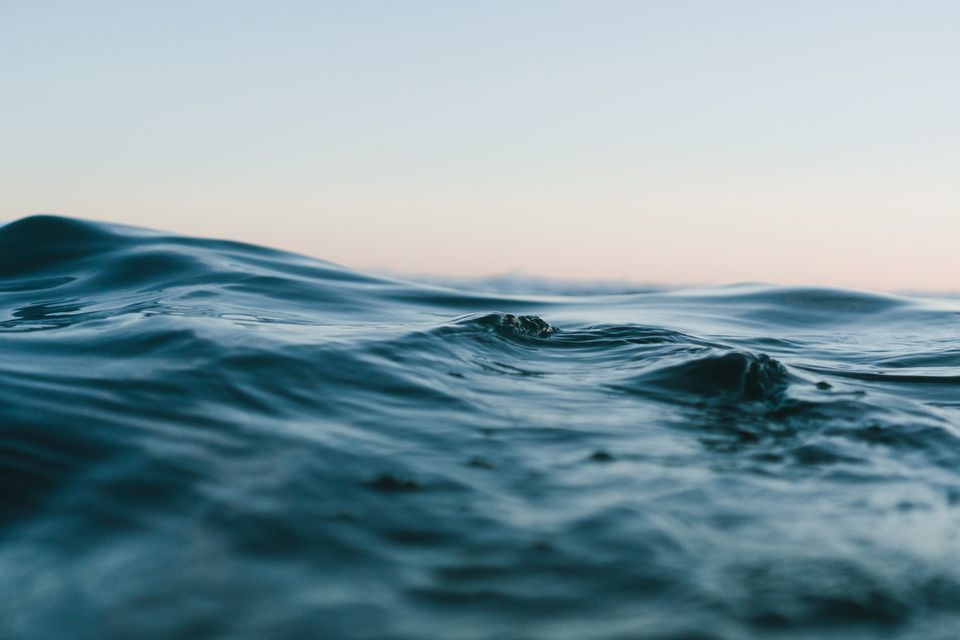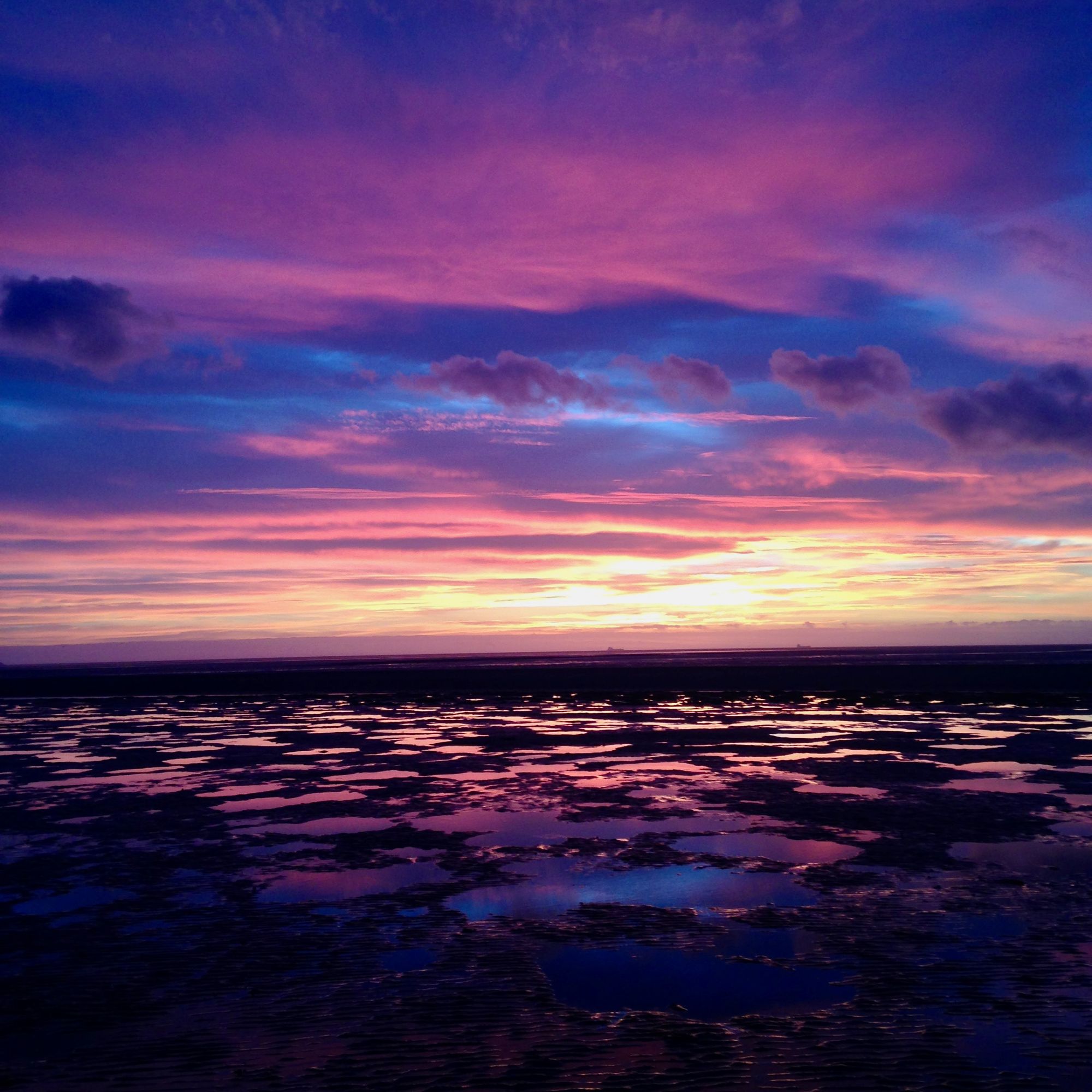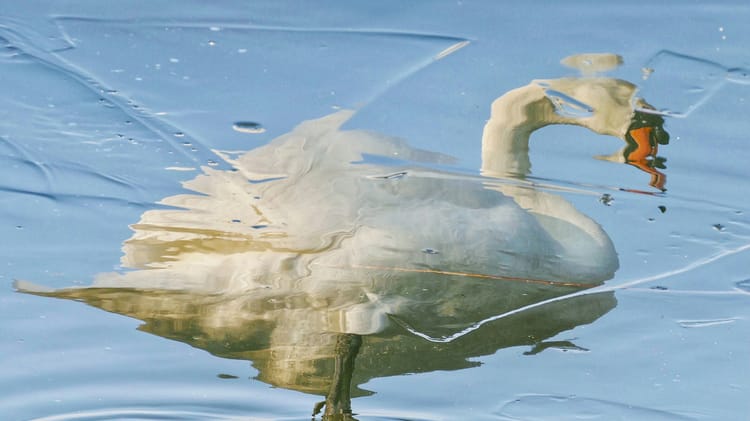Blue mind

Have you ever noticed how spending time near the water, whether it's the ocean, a lake, or a river, puts you at ease and makes you feel better? For instance, I instantly feel calmer, happier, and more alive when I find myself near a large body of water or when I hear a river flow near me. When I was living in Dublin, I would often take my bike and go for a walk on Sandymount Strand. No matter what I was going through, spending some time there would always help me recharge. Unfortunately, I'm currently living far from the sea, but I take any chance I get to either go to one of the lakes near my city or go up to the mountains and spend time by a river, and my absolute ultimate dream would be to live by the ocean. I'm actually spending a few days at a seaside location right now—had my first dinner on the terrace overlooking the sea yesterday evening and immediately felt the positive effects of being here.
"Blue Mind", a term coined by marine biologist and author Wallace J. Nichols, refers to the mildly meditative, soothing and creative state of mind that people experience when they are in the presence of water. Nichols and his team wanted to: a) delve deeper into the remarkable therapeutic effects that water has on our brains and bodies; b) create a set of practices that we can all use to benefit from this "blue mind effect" on a daily basis, no matter where in the world we find ourselves.
With regard to point a), the positive effects of being in the presence of water have been substantiated by a lot of scientific research, and they encompass a wide range of physical, mental, and emotional benefits. For instance, the sound of water has a calming effect on the brain, and some studies found that people who lived near the coast reported lower stress levels and better mental health. The soothing and rhythmic nature of water appears to encourage divergent thinking, leading to increased creative problem-solving abilities (we talked about divergent thinking and tapping into your creativity here). Some research suggests that natural water features, like lakes and rivers, can help restore cognitive abilities, including attention and memory, after mental fatigue. Some studies have also indicated that the sound of water can have analgesic effects—it is believed that the soothing qualities of water sounds may distract the brain from pain signals, offering relief to individuals experiencing various types of discomfort.
With regard to point b), Nichols suggests that cultivating a blue mind is essential in today's world, where we find ourselves in a constant state of hyper connectivity and information overload. The new normal of modern life is what he calls the "red mind", i.e. a state of overstimulation that can be harnessed for good in our professional lives, but that also makes us distracted and anxious. Staying in red mind too long can lead to the "grey mind", i.e. burnout and exhaustion. Maintaining a balance between red and blue mind, between action and restoration, is key, and that's why Nichols has developed a set of blue mind practices that everyone can access and cultivate.
He encourages everyone to carry out an inventory on the types of water available to them, which he separates into four broad categories: wild water such as natural bodies (oceans, lakes, seas, rivers, waterfalls); urban water, which includes developed waterfronts or public fountains; domestic water including pools, tubs, showers; virtual water, which can be found via art, photography, nature sounds, etc. We can even access blue mind by closing our eyes and use our imagination to take us back to water places we loved. For instance, I don't have easy access to natural bodies of water, but I always have access to public fountains, which are abundant in my city, or to my tub (my weekly bath with Epsom sea salts is sacred time). I also use the Insight Timer apps to listen to nature sounds, including ocean waves. And I occasionally like to look at the many photographs of the Irish Sea or the Atlantic Ocean I tool while living in Ireland, or remember the Cliff Walk in Howth I used to regularly take, and all of the beautiful sensations and emotions it used to evoke in me.
Nichols emphasizes that we should become very mindful of the presence of water in our lives. Even when washing the dishes, we should appreciate the sound of the water coming out of the tap, how it feels on our hands, how precious it is, and how far it has traveled to come to us. He also adds that blue mind is an intuitive idea, and that all throughout human history every tradition, every culture has held this belief that water is healing not just for our bodies, but also for our minds.
Another important point Nichols makes is that blue mind works so long as the water we're looking at, or swimming in, is healthy. Unfortunately, as we all know, our oceans, lakes, rivers are becoming more and more polluted. That's why he is an advocate for ocean conservation efforts, and by spreading awareness about the importance of blue mind, he hopes to provide people with a deeper appreciation for nature and more positive environmental attitudes. You can start to learn more about his work and philosophy here.
That's all for today, leaving you with one of my favorite pics of Sandymount Strand (a sleepless night had led me to cycle there before sunset) + my evening salad yesterday :)





Member discussion